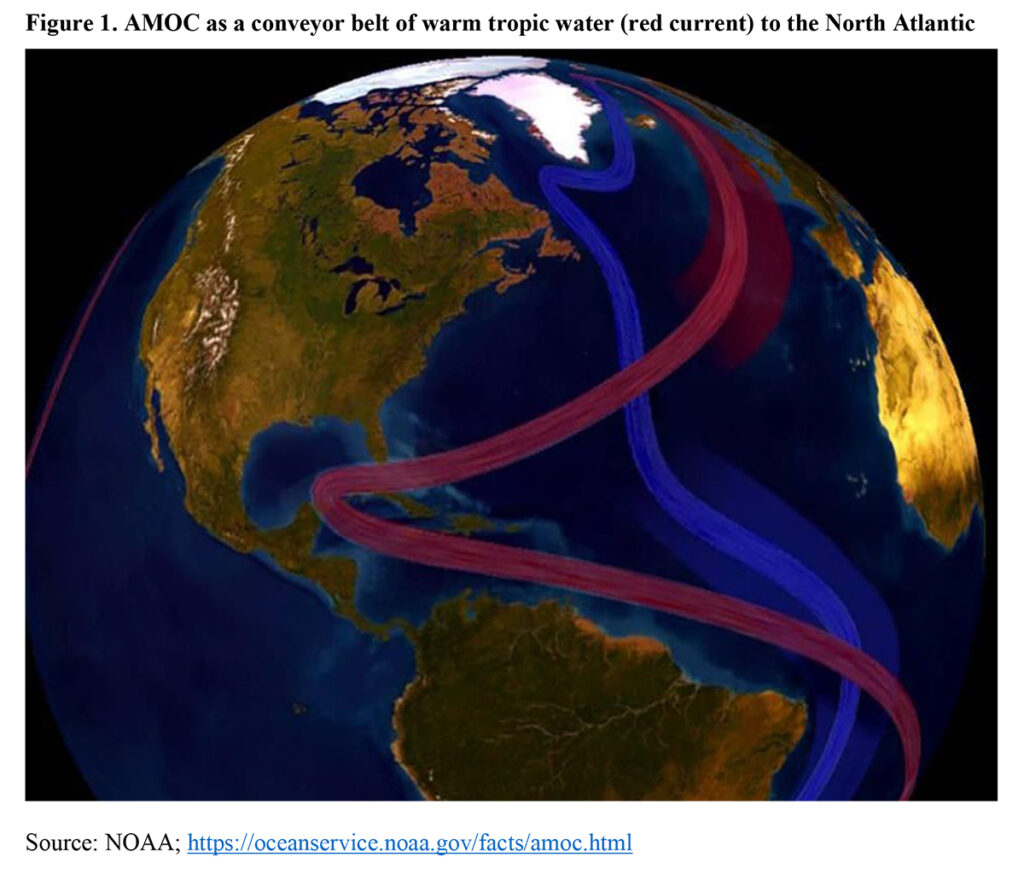Global warming headlines for the inglorious summer of 2023 carry no good news:
“Summer Heat Waves Killed 61,000 in Europe Last Year”
“85 million people in the U.S. may be exposed to dangerous heat today”
“Phoenix’s record streak of temperatures above 110F ends after 31 days”
“Canadian wildfire smoke puts around 70 million U.S. residents under air quality alerts”
“Lahaina fire becomes deadliest in the U.S. in over 100 years”
“Seas have drastically risen along southern U.S. coast in past decade”
“Warming Could Push the Atlantic Past a ‘Tipping Point’ This Century”
These developments form two clusters. First, immediate impacts, such as fires and heat waves, are now conspicuously larger, longer, more frequent, and much deadlier. These deadly trends, predicted decades ago, will continue to worsen because we are still pumping copious quantities of greenhouse gases into the atmosphere. Thus, Phoenix’s record-busting, 31-day heat wave will become a regular summer occurrence in the Southwest. And as the decades roll by, two-week to month-long heat waves will eventually visit Illinois (Dahl 2019). When lengthy regional heat waves spread into areas with high humidity, death counts will soar. The loss of 1,200 people in the 2021 Pacific Northwest heat wave — featuring mostly “dry heat” — is likely to prove modest compared to an equally large and long heat wave in the Midwest’s humid Mississippi Valley.
Europe’s track record shows the magnitude of casualties from large-scale heat waves. Caught completely unprepared, the massive European heat wave of 2003 claimed more than 70,000 lives. Italy, France, Spain, and Germany lost 20,000, 15,000, 13,000, and 10,000 people, respectively (Wikipedia 2023). Afterwards, some countries prepared for another killer heat wave, others did not. As a result, last year’s European heat wave killed another 61,000 people. It is foolhardy to assume that the same level of casualties cannot happen here or that our officials will prepare better than the Europeans.
Second, there has been a pronounced acceleration in bad, potentially irreversible changes. Particularly worrisome is new research on the possible collapse of the Atlantic Meridional Overturning Current (AMOC for short) by midcentury if not much sooner (Moody & Denis 2023). That’s a century earlier than previously expected. AMOC is the globe-spanning ocean current that moves massive amounts of warm tropical water up our East Coast and thence to the North Atlantic where the dispersed heat creates a mild climate for Europe (Figure 1). If ever-larger quantities of fresh water from Greenland’s melting glaciers shuts down this current, there will be worldwide climate disruptions. Among other things, European winters will become much colder (as much as -25°F colder), Africa will suffer from drought, and the U.S. South will be hotter and drier while our coastal waters will rise faster.
The slowing AMOC is already dumping more hot water along the Gulf Coast and Florida which is contributing to the abrupt increase in sea level rise over the last decade. Since 2006 (Hurricane Katrina), the sea level at New Orleans’ Lake Pontchartrain has risen eight inches. And Pensacola, Fla., which witnessed one-twelfth of an inch rise per year, 1923-2009, has, since 2010, seen increases of half-inch inch per year — a six-fold increase. The trends are not our friends.
So, will this summer of our discontent spur our leaders to finally prepare for death-dealing events? I’ll turn to that issue in another column.
References
Dahl, Kristina, et al. 2019 (Jul 20. Killer Heat in the United States. Union of Concerned Scientists; https://www.ucsusa.org/resources/killer-heat-united-states-0
Erdenesanaa, Delger. 2023 (Jul 10). Summer Heat Waves Killed 61,000 in Europe Last Year, Study Says. New York Times; https://www.nytimes.com/2023/07/10/climate/heat-waves-europe-deaths.html
Mooney, Chris & Brady Denis. 2023 (Apr 10). Seas have drastically risen along southern US coast in past decade. Washington Post; https://www.washingtonpost.com/climate-environment/2023/04/10/sea-level-rise-southern-us/
Wikipedia. 2023 (Aug 13). 2003 European heat wave. https://en.wikipedia.org/wiki/2003_European_heat_wave
Zhong, Raymond. 2023 (Jul 25). Warming Could Push the Atlantic Past a ‘Tipping Point’ This Century. New York Times; https://www.nytimes.com/2023/07/25/climate/atlantic-ocean-tipping-point.html


